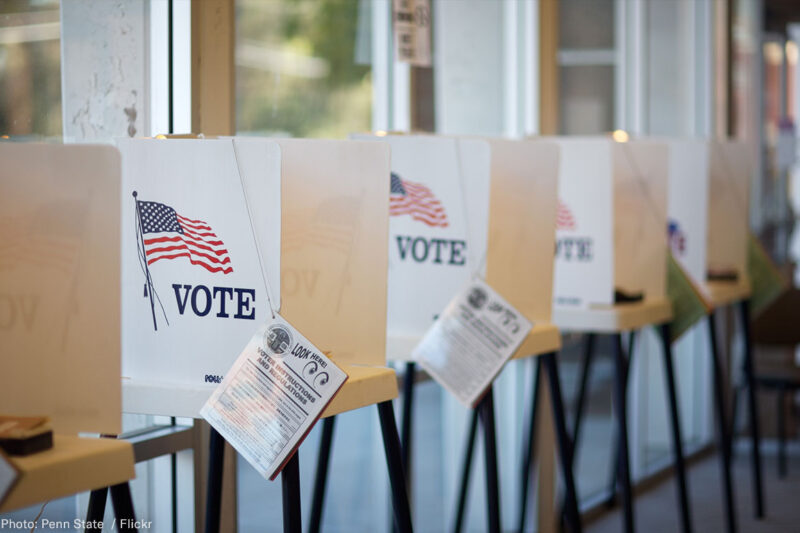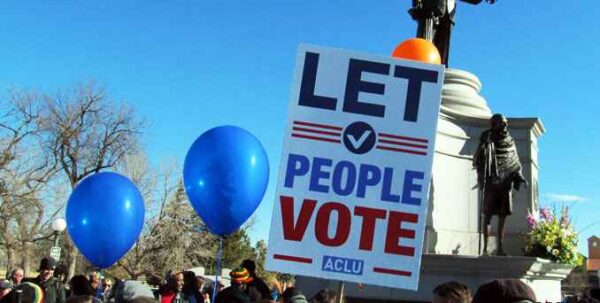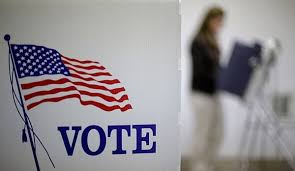
The state of Arizona is violating the National Voter Registration Act, putting more than 500,000 voters at risk of being disenfranchised. The ACLU has repeatedly warned Arizona that it is violating the law, and yet it has failed to take the necessary steps to protect voters.
This weekend, we filed a federal lawsuit against Arizona Secretary of State Michele Reagan, nine months after first notifying her office of significant federal voting rights violations. The lawsuit asks the court to order Arizona to keep voters’ registration addresses up to date. To ensure that affected voters’ ballots count in the 2018 general election, we are also asking the court to instruct the secretary of state to count provisional ballots cast by affected voters and to send a mailing to all affected voters informing them of how to correct their registration address and locate polling location. The secretary of state has indicated that more than half a million of voters could require their addresses to be updated.
Under the National Voter Registration Act, the federal government requires states to offer people the opportunity to register to vote in a wide range of settings. One of these requirements is that any time voters update their address through a motor vehicle agency, their voter registration address must also be simultaneously updated, unless they opt out.
Arizona, however, is not making this simultaneous update, meaning that thousands of voters must either take the additional step of updating their own voter registration address or risk disenfranchisement. The consequences could be especially dire given that almost 70 percent of Arizonans changed their residential address between 2000 and 2010, the second highest rate of any state.
The state’s failure to update addresses could set off a chain of events for voters that lead to disenfranchisement. When someone moves, they are required to vote in the polling location for their new address. But Arizona voters whose registration address has not been updated by the secretary of state will not receive mailers that help them identify their new polling location.
As a result, many of these voters understandably return to their old polling location. Poll workers are supposed to instruct these voters to go to the polling location for their new address. But in many instances this does not happen or the voter is not able to get to the new location before the polls close. These voters don’t even have an option to cast a provisional ballot that will be counted, as Arizona state law doesn’t allow for them in that specific circumstance. Arizona consistently is at or near the top of the list of states that collect and reject the largest number of provisional ballots each election. In the 2008 election, 14,885 out of precinct ballots were not counted, constituting 0.6 percent of total ballots cast. In the 2012 election, 10,979 ballots were cast out of precinct and thus not counted, which constituted 0.5 percent of all ballots cast.
For voters who opt to receive their ballot via mail, the consequences of the secretary of state’s failure to update their address are also severe. In 2016, approximately 75 percent of votes cast in Arizona were ballots received by mail. If someone who votes by mail moves and their registration address is not updated, they will not receive their ballot. Many voters don’t realize their ballot hasn’t arrived until it is too late to request that one be sent to their new address. Voters who do not receive their mail ballot and are unable to vote in person due to disabilities, employment schedules, transportation challenges, or caregiving responsibilities are disenfranchised.
Arizona needs to fix this problem before it’s too late. The right to vote for hundreds of thousands of people hangs in the balance.
This case is being brought by the ACLU, the ACLU of Arizona, Demos, the Lawyers Committee for Civil Rights Under Law, and the law firm Bryan Cave Leighton Paisner, on behalf of the League of Women Voters of Arizona, Mi Famila Vota and Promise Arizona.


